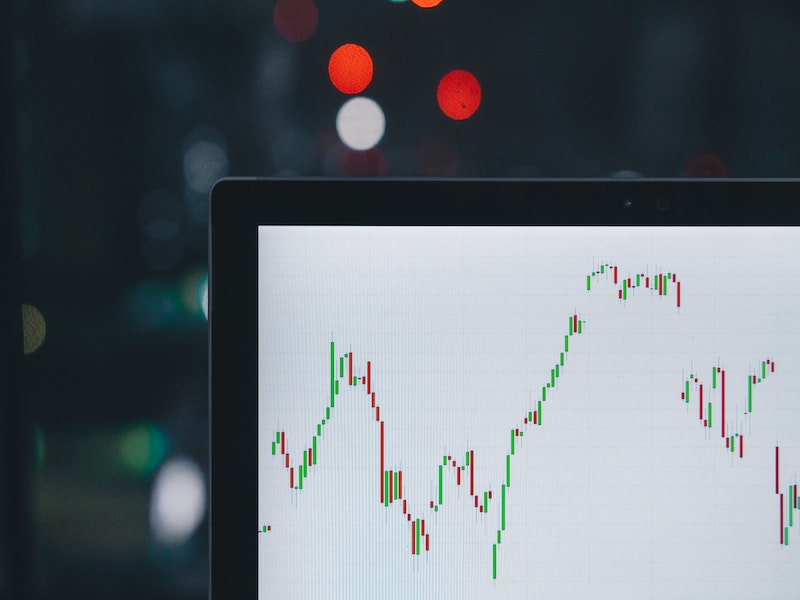The GDP undermines efforts to move towards a sustainable society
The Exxon Valdez disaster in 1989 led to 37,000 tonnes of oil spilling into the ocean off the coast of Alaska. The death toll included 250,000 seabirds, almost 3,000 sea otters, 300 harbour seals, 250 bald eagles, 22 killer whales, and billions of salmon eggs. And yet the money spent on the clean-up effort boosted the US GDP — the oil spill was considered an economic gain. How could such a catastrophic disaster be viewed in a positive light? It all comes down to how we measure economic success.
Achieving economic growth has become the holy grail for governments because a growing economy creates a rising tide that raises all boats. That rising tide equates to more wealth in society. More wealth means higher incomes. Higher incomes mean individuals have greater potential to buy more stuff. This leads to increasing living standards — that’s the idea, anyway.
The yardstick used to measure whether an economy has grown is Gross Domestic Product (GDP). GDP “counts all the economic output generated within the nation’s boundary.” GDP differs from Gross National Product (GNP) because GNP includes economic output generated domestically and overseas. Both are designed to measure the same thing — whether output has increased.
The success or failure of governments often hinges on the performance of GDP because it’s directly linked to employment, interest rates, health care, education and infrastructure development. Increasing GDP means increasing output — the economy has grown. This often means more companies in business. More companies mean more jobs. More jobs mean more money in people’s pockets. More money in people’s pockets means happier voters.
Decreasing GDP means decreasing output — the economy has shrunk. Decreasing GDP can lead to recession. Recession often means bankruptcies and fewer businesses. Fewer businesses mean more redundancies and fewer jobs. Fewer jobs mean less money in people’s pockets. Recessions tend to be accompanied by inflation and higher interest rates, driving the cost of living up. All in all a recipe for social discontent and unhappy voters.
The thing is, GDP was never designed to have such a powerful social and economic influence. This national accounting system was developed to help countries manage their economies out of the great depression. Simon Kuznets, who played a leading role in its development, warned the US congress about the limitations of the GDP in 1934, saying, “the welfare of a nation can…scarcely be inferred from a measurement of national income.” Kuznets’ warning was ignored. In 1968, US Senator Robert Kennedy made an impassioned speech about the inherent flaws of GDP. GDP, he said;
“includes air pollution and advertising for cigarettes, and ambulances to clear our highways of carnage. It counts special locks for our doors, and jails for the people who break them….it does not allow for the health of our families, the quality of their education, or the joy of their play. It is indifferent to the decency of our factories and the safety of our streets alike. It does not include the beauty of our poetry or the strength of our marriages, or the intelligence of our public debate or the integrity of our public officials…GNP…measures everything, in short, except that which makes life worthwhile.”
As Kennedy points out, the danger with GDP is that it’s designed to measure output, not whether that output has a positive social impact or comes at an environmental cost. Hence, a catastrophic oil spill can be seen in a positive light. Using GDP as a barometer for social success is in the spirit of reductionism. Lasering in on increasing output when that output may have degraded the environment leaves us poorer, not richer. For this reason, many economists argue that GDP is incapable of connecting the economy with social and environmental outcomes that determine our well-being and the sustainability of the planet.
The flaws of GDP and the need to measure social success differently are widely recognised. In 2008 French president Nicholas Sarkozy was so unsatisfied with GDP as a measurement of social success that he created the Commission on the Measurement of Economic Performance and Social Progress to devise an alternative. That Commission led to the publication of Beyond GDP: Measuring What Counts for Economic and Social Performance. In it, the authors highlight why GDP is not fit for purpose and suggest how we can measure social well-being within ecological limits. Meanwhile, a research project at the Bennett Institute for Public Policy (at the University of Cambridge) has been launched to develop better metrics of social and natural assets.
A mountain of sources focus on moving away from GDP and towards metrics focusing on human well-being. If even presidents of nations question its use, it seems almost laughably simple to solve the issues created by GDP — just change the metric. It has, after all, only been used since the 1930s. But it’s not as simple as that — the goal of the economy has not changed, so what’s the incentive to change the metric used to measure growth? No matter how much evidence shows its glaring flaws, and alternatives that could profoundly shift behaviour and motivations, GDP will continue being used to measure economic success because it does the job it’s designed to do so well.
We would do well to remember the power of metrics alluded to by the behavioural economist Dan Ariely, who said, “human beings adjust behaviour based on the metrics they’re held against…what you measure is what you’ll get.” So long as our fixation with increasing GDP remains, we’ll continue disregarding the environmental costs of increasing output. That means we’ll continue to damage the natural world and increase the risk of triggering tipping points that could lead to social collapse in the not-too-distant future. That risk will only increase so long as short-term economic interests are prioritised over the health of the environment from which all wealth originates.



